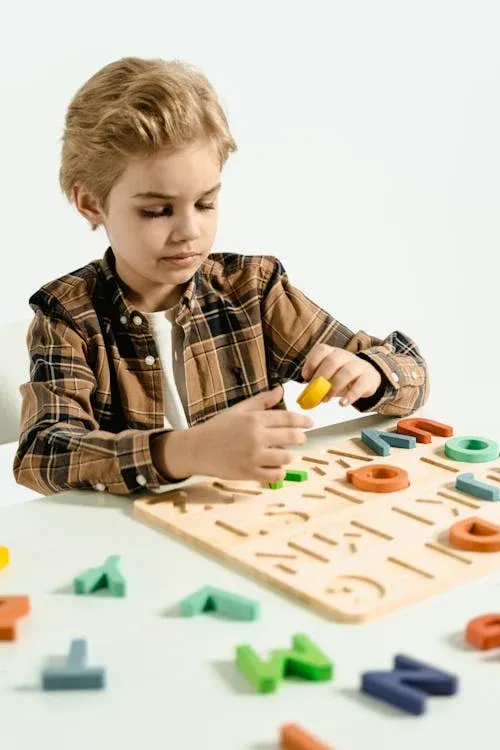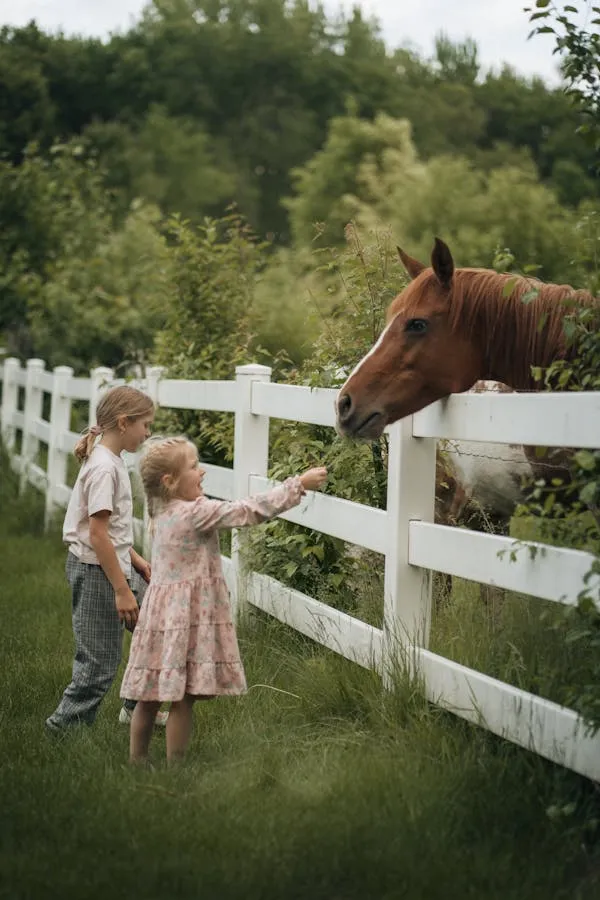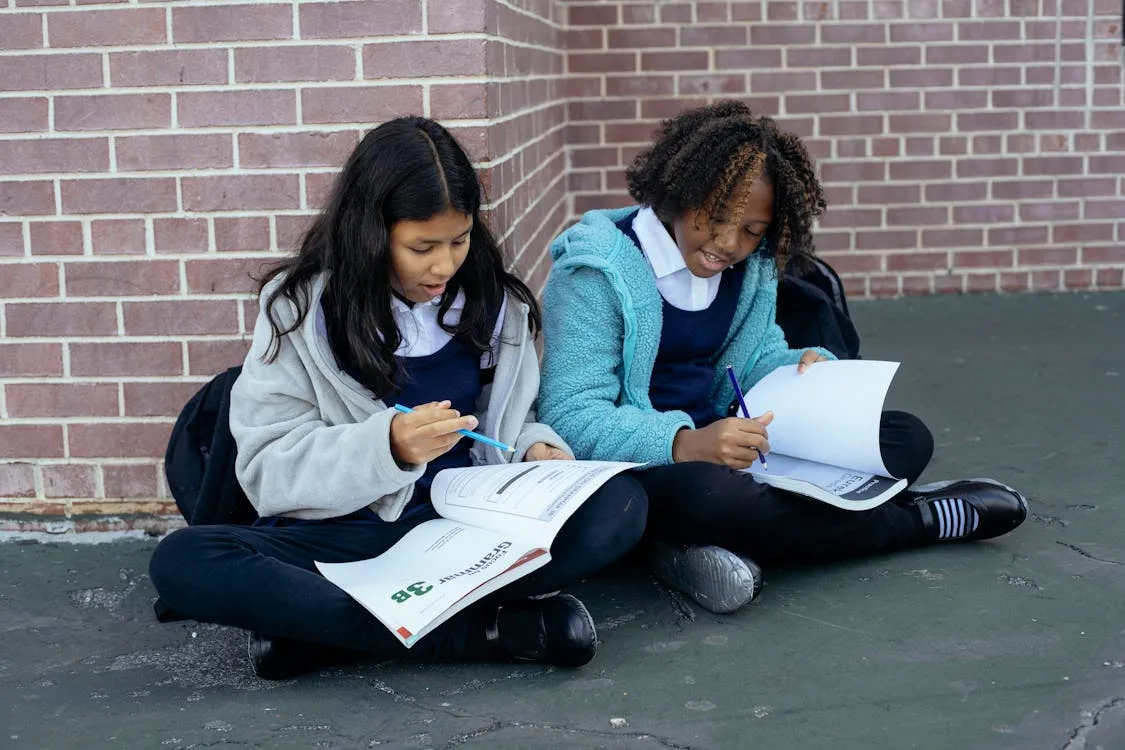20 Signs Your Child Is Ahead of Their Age (That Aren't Academic)
Seeing your child grow beyond their age may be excellent for a parent. These are twenty indicators that your child might be maturing outside their years in spheres unrelated to academics.
- Tricia Quitales
- 6 min read

Being “ahead of their age” is about displaying skills and abilities that truly differentiate a child from their peers, not about perfection. One indicator of progress is academic performance, emotional intelligence, social skills, and other traits, it can indicate their degree of forward direction as well. Should your youngster show these symptoms, their well-rounded emotional, social, and cognitive development may be reflected. Remember to support and inspire these qualities since they will enable one to negotiate life with compassion and confidence.
1. They Demonstrate Strong Compassion
 Keira Burton on Pexels
Keira Burton on Pexels
Your child offers comfort or worry even when it’s not necessary, as she has a great capacity to identify and grasp the feelings of others. Whether it’s consoling a friend or inquiring how someone feels, they frequently show genuine concern for the welfare of others. They may relate to fictional creatures or characters in a way that seems especially developed for their age.
2. They Approach Emotions Like an Adult
 Arina Krasnikova on Pexels
Arina Krasnikova on Pexels
Your youngster can learn to balance their emotions instead of acting out in fits or becoming overwhelmed. They might employ self-soothing techniques, a respite, or a frank expression of their feelings. Their emotional development helps them to negotiate difficult circumstances with more resilience than that of their peers.
3. They Inquire Thoughtfully
 Lisa Fotios on Pexels
Lisa Fotios on Pexels
Your youngster is delving into more general ideas like life, death, or the nature of humans than just wondering about things. Seeking better knowledge, they sometimes challenge society’s rules, the surroundings, or philosophical concepts. This degree of interest indicates their ability to think abstractly outside conventional childhood interests.
4. They Show Initiative
 Ron Lach on Pexels
Ron Lach on Pexels
Your child approaches chores or solves difficulties actively instead of waiting for others to tell them what to do. Without reminders, they lead in planning group events, supporting others, or juggling personal obligations. Their capacity to predict requirements or act autonomously reveals a great degree of responsibility and initiative.
5. They Express Fairness
 Mikhail Nilov on Pexels
Mikhail Nilov on Pexels
Whether defending a peer or advocating against injustices, your child often acts when they witness someone being mistreated because they have a strong sense of justice. When rules are breached or if anything seems morally repugnant, they will typically draw attention or show annoyance. Their understanding of justice will enable them to be sympathetic champions of others.
6. Their Communicate Maturely
 Vanessa Loring on Pexels
Vanessa Loring on Pexels
Your youngster speaks clearly and confidently, usually using language or tone more advanced than those of classmates. They amaze others by being able to explain themselves clearly, ask pertinent questions, and engage in adult conversations. Effective communication reveals a good command of language and emotional expression.
7. They Are Quite Observant
 Kampus Production on Pexels
Kampus Production on Pexels
Your youngster picks up on things others overlook, whether environmental changes or minute emotional swings. They pay close attention to the little details—such as someone’s facial expression or the room arrangement—and then remark on them. This increased awareness can help kids seem intelligent beyond their years.
8. They Enable Close Relationships
 RDNE Stock project on Pexels
RDNE Stock project on Pexels
Your child shows loyalty, trust, and empathy in their relationships as they form deep friendships with adults and peers alike. They know the dynamics of good relationships, including sharing, listening, and helping others. These close emotional ties point to social maturity unusual for their age.
9. They Know Their Self
 Elina Fairytale on Pexels
Elina Fairytale on Pexels
Early on, your child can discuss their emotions, strengths, and places for development. They might consider their behavior and show a wish to grow personally or engage in novel activities. This self-awareness helps individuals to negotiate life, knowing precisely who they are and what they desire.
10. They Show Abilities To Solve Problems
 MART PRODUCTION on Pexels
MART PRODUCTION on Pexels
When confronted with a difficulty, your youngster does not panic but rather coolly works to find an answer independently. They are resourceful, whether repairing something or figuring out another approach to complete a chore. Often much above what would be expected for their age, this practical thinking and problem-solving aptitude is invaluable.
11. They Share a Special Sense of Comedy
 cottonbro studio on Pexels
cottonbro studio on Pexels
Your child can appreciate sarcasm, wordplay, and even dark humor—jokes and comedy that might pass past their peers. They could delight in making others laugh with deft insights or clever comments. Their sense of humor suggests advanced social dynamic awareness and sophisticated cognitive ability.
12. They Show Interest in World or Social Conflicts
 Olya Harytovich on Pexels
Olya Harytovich on Pexels
Your child asks many questions about things happening in the world or issues affecting society, like protecting animals, human rights, or climate change. They might also talk about how they want to change the world and how worried they are about it. This awareness shows that they are carefully observing their surroundings.
13. They Show Leadership
 cottonbro studio on Pexels
cottonbro studio on Pexels
Your child naturally leads others—from planning a game to making decisions to assisting others in solving problems—even at a young age. They lead without being demanding, fostering respect and confidence among their peers. Many times, this capacity for successful leadership marks maturity and social intelligence.
14. They Display Their Independence
 RDNE Stock project on Pexels
RDNE Stock project on Pexels
From choosing their clothes to scheduling their time or handling personal chores, your youngster likes to handle things independently. They only rely on themselves for direction; they can manage obligations with little help. This independence indicates that they are growing to be relatively self-sufficient and autonomous.
15. They Know About Delayed Pleasure
 cottonbro studio on Pexels
cottonbro studio on Pexels
Whether your child is saving money for a wanted item or a unique event, they can wait for something they desire. They can fight impulse wants and instead concentrate on long-term benefits, this self-discipline clearly indicates maturity and future success in handling conflict appropriately.
16. They Handle Conflict Appropriately
 Squared one on Pexels
Squared one on Pexels
Your youngster resolves problems calmly and logically instead of acting out in fits or arguments. This capacity to resolve conflicts amply suggests emotional intelligence and social maturity.
17. They Express Compassion To Animals
 iddea photo on Pexels
iddea photo on Pexels
Your child shows kindness to wild animals or pets they encounter and frequently exhibits love and concern for animals. This sensitivity for living things reveals a developed empathy and appreciation of life.
18. They Know and Live Out Responsibility
 cottonbro studio on Pexels
cottonbro studio on Pexels
From keeping their room clean to honoring their promises, your youngster owns their actions and possessions. They could remind people of their obligations or even volunteer extra work without permission. This degree of responsibility reveals their awareness of the need for commitment and accountability.
19. They are Tolerant and Open-Minded
 Mary Taylor on Pexels
Mary Taylor on Pexels
No matter where they come from, what they believe, or what new ideas they have, our child is open to differences. They don’t judge others based on their looks or personal tastes; instead, they treat differences with care and curiosity. Being open-minded shows that they are emotionally intelligent and aware of how complicated the world is.
20. They Can Slow Down Impulses
 Yan Krukau on Pexels
Yan Krukau on Pexels
Your child can show patience that exceeds usual behavior for their age by waiting for a turn, following instructions, or resisting the want to interrupt. Though they don’t provide instant gratification, they can follow through with chores and see the value of regulations. Emotional maturity and self-control are shown by this capacity to postpone impulses.
- Tags:
- Ahead
- Child
- Development
- Skills
- Qualities